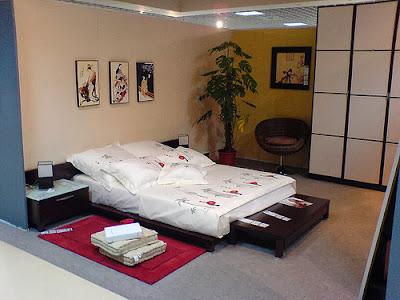Simplicity attracts brilliant and positive thoughts. It is as though you are compelled to contemplate new philosophies and ideas when you are within a bare room. It allows you to dream of making ships and building towers in order that the world will benefit from your lofty ideas. It seems that the value of Japanese interior design lies in the creation of simple interiors with great potentials to permit the people within to go about their lives with constant vigor and consistent productivity. The elements are controlled in their colors, styles and distribution so as not to hinder on the path of human growth.
Japanese interior design is composed of simple indoor structures, unadorned furnishings and one or two focal points. These interior elements combine in a harmonious way, each element playing its part to enhance the appearance of a space and come up with the perfect balance of austere environment and tranquil indoor setting. It is the aim of Japanese interior design to be functional and beneficial, and at the same time, to infuse beauty in the most unexpected places and the most inconspicuous elements. The rich texture and subdued color of the tatami mat can seem negligible but in an interior that is clean and simple, the tatami mat blends and adapts rather well. The appearance of the shoji screens as wall partitions, although uniform and continuous, creates an understated elegance that cannot be compared to the warm and appealing texture of a brick wall. The interior elements can stand their ground when placed beside their much more detailed and elaborate counterparts. The austerity and beauty of the traditional Japanese garden placed outside the house or in the courtyard bears a vivid contrast to the floral gardens outside English country homes. The color of the plants and flowers remain warm-toned and earthy instead of vibrant and colorful.
Each element in a Japanese style interior is intended to be a cooperative participant in the enhancement of the entire space. They would rather blend in than stand out. Everything is flowing and continuous just like the breeze that circulates within a Japanese home. The walls have one uniform and cohesive detail just like the floors and ceiling. The furnishings are simple with plain solid colored fabrics. A lacquer armoire and blue and green vases can break the monotony but only in a very subtle way that still doesn't interrupt the overall look of the interior, rather they polish it and make it more memorable with their presence.





